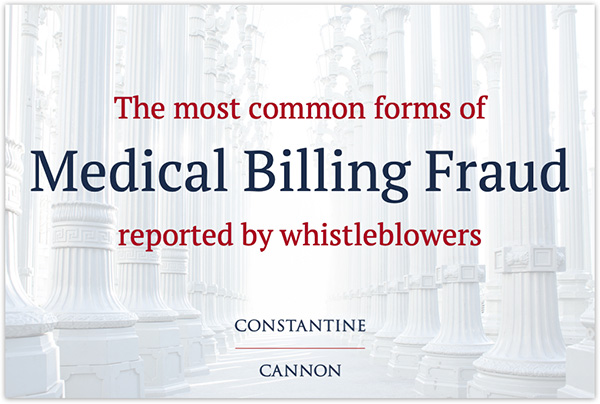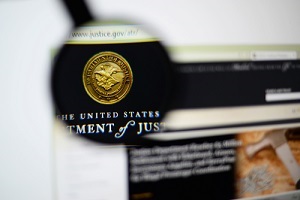Medical Billing Fraud
Understanding the three most common forms of medical billing fraud.
 Medical billing fraud can occur in a variety of ways. Some of the most common ones are upcoding, unbundling, and billing for services that were not provided. Many other fraudulent schemes exist, however. When a provider submits a fraudulent bill for payment, they may be liable under the False Claims Act, and whistleblowers pay a critical role in exposing this kind of fraud.
Medical billing fraud can occur in a variety of ways. Some of the most common ones are upcoding, unbundling, and billing for services that were not provided. Many other fraudulent schemes exist, however. When a provider submits a fraudulent bill for payment, they may be liable under the False Claims Act, and whistleblowers pay a critical role in exposing this kind of fraud.
Upcoding Fraud
Upcoding is a kind of medical billing fraud that occurs when a provider sends a bill to Medicare or another payor for a more expensive service than the one actually performed. For example, the provider might:
- exaggerate the time the procedure took to perform
- misstate the equipment involved in the procedure
- lie about the staff involved in performing the procedure
- bill for individual therapy when group therapy was actually provided
- simply make up that a procedure happened
- perform (and bill for) procedures that patients simply do not need in violation of “medical necessity” rules
Upcoding also occurs with risk adjustment fraud committed under Medicare Part C, when a Medicare Advantage patient’s diagnostic data is exaggerated in order to draw additional risk adjustment payments from Medicare.
Unbundling Fraud
Unbundling is a fraudulent billing scheme accomplished by billing several different procedure codes for a group of procedures, even though the group should properly be billed under a single all-encompassing code. The sum of reimbursements for each code paid separately is higher than the reimbursement for the comprehensive code, causing an overpayment. For example, a physician might order a panel of blood tests for a particular patient. The laboratory receiving the order commits fraud if, instead of billing for the panel, it attempts to increase its income by billing separately for each test conducted.
Billing for Services Not Provided
The Government will only pay for medical services that are actually performed or for equipment that is actually delivered. It can be a violation of the False Claims Act to bill the Government for healthcare services, supplies or equipment that were not performed or delivered. While sometimes bills are submitted for completely fictional services, medical billing fraud also happens when, for example, a diagnostic testing lab submits a bill claiming it has performed both a two dimensional CAT scan and a sophisticated 3D scan and analysis, when, in fact, only the 2D scan was performed. They are billing for service that was not actually provided.




